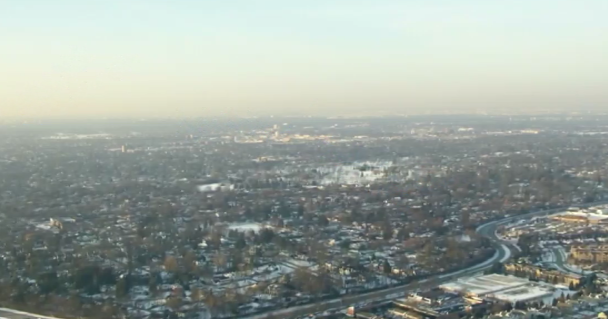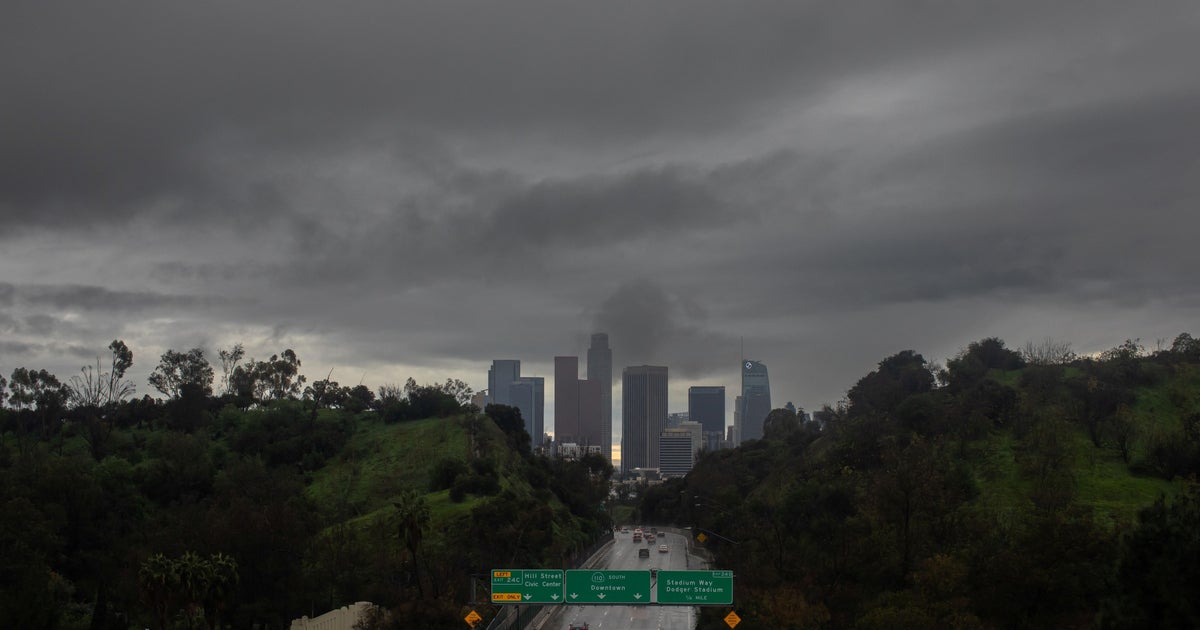Minnesota Fire Smoke Hovers Over Chicago
UPDATED 09/14/11 10:13 a.m.
CHICAGO (CBS) -- Smoke from the wildfires in northern Minnesota continues to linger in the air over the Chicago area, and could be dangerous for many people.
CBS 2 Meteorologist Megan Glaros says the smell of smoke will likely remain in the air throughout the day Wednesday, and could result in reduced visibility when combined with fog in the area.
Due to the smoke, an air pollution action day is in effect for the Chicago area Wednesday. The Illinois Environmental Protection Agency and the Partners for Clean Air have enacted the action day for Cook County and the six collar counties, as well as Kendall and Grundy counties, the Sun-Times Media Wire reported.
The source of the smoke is a rapidly expanding Pagami Creek wildfire in the north woods of Minnesota near the Canadian border, in the Boundary Waters Canoe Area Wilderness. The fire started Aug. 18, and has now covered nearly 160 square miles, the Associated Press reported.
"We've had dozens of telephone calls reporting the smoke; the smell of an electrical fire," said Arlington Heights police Sgt. Stephanie Mack.
But that smoke was not coming from anywhere near Arlington Heights, it blew down over Lake Superior and down the middle of Wisconsin, right into the Chicago area.
"Burning my eyes and lots of sneezing," said Peter Dudycz of Arlington Heights.
"I noticed it more as I got my dog and came out and ran around the park, and it's not bothersome, I wouldn't say, but it's just, you know, very smoky," said Tracy Crowley, also of Arlington Heights.
Dr. Joseph Lejia of Gottlieb Memorial Hospital in Melrose Park also saw the haze from the top of the hospital building. He said those who have allergies or respiratory issues need to be extra-careful.
"People that have asthma, people that have emphysema, people who have chronic lung diseases need to stay indoors as much as possible," Lejia told CBS 2's Pamela Jones.
The layers of heavy haze that were first spotted in the northern suburbs soon covered much of the skyline by Tuesday afternoon, once again making Chicagoans assume there was an emergency here.
"The Chicago Fire Department responded to several calls for citizens who believed there was a fire in their own building," said Office of Emergency Management and Communications spokesman Roderick Drew. "Fortunately, that was not the case."
Several schools in the area were forced to keep all their windows closed Tuesday, even canceling outdoor activities and sporting events.
Problems with the smoke were also reported in Milwaukee, where the Brewers had to retract the roof of Miller Park before a game against the Colorado Rockies.
Anyone with health issues that could be affected by the smoke is advised to take proper precautions.
"For those individuals that are in the sensitive health risk groups – and primarily, those are older individuals that would be affected by the smoke, young children, as well as people who have heart and lung disease such as COPD or emphysema or asthma – they should certainly limit their time outdoors, and be certain to check those air quality reports that you've been talking about," said Debra Quackenbush of the McHenry County Health Department.
She advised people to check the Web site AirNow.gov, administered by the U.S. Environmental Protection Agency, for air quality reports.
Rush University Medical Center allergist Dr. Giselle Mosnaim added that anyone who is in an area with a poor air quality index should limit outdoor activities or physical activity of any kind.
But if you have to be outside, and you have allergies or a heart or lung condition, "you just want to keep it to a minimum and reduce any kind of physical exertion," Mosnaim said.
The irritants are being caused by fine particles released by the combustion of wood and vegetation, which enter the lungs and cause discomfort, Mosniam explained.
People with respiratory problems may feel short of breath, or may feel a burning sensation in their airways.
The U.S. Environmental Protection Agency advises further that you should keep your indoor air as clean as possible. This means keeping windows and doors closed, and running your air conditioner with the fresh air intake closed and the filter clean.
Further, the EPA advises keeping particle levels inside lower by avoiding using anything that burns, be it a fire in the fireplace, gas logs, gas stoves, and even candles or incense. The EPA also advises against vacuuming, as it stirs up the particles and increases the threat of pollution, and also discourages smoking cigarettes, as it will add to the pollution of your lungs and those of others.
Air quality is expected to improve Wednesday, but not until later in the day.







